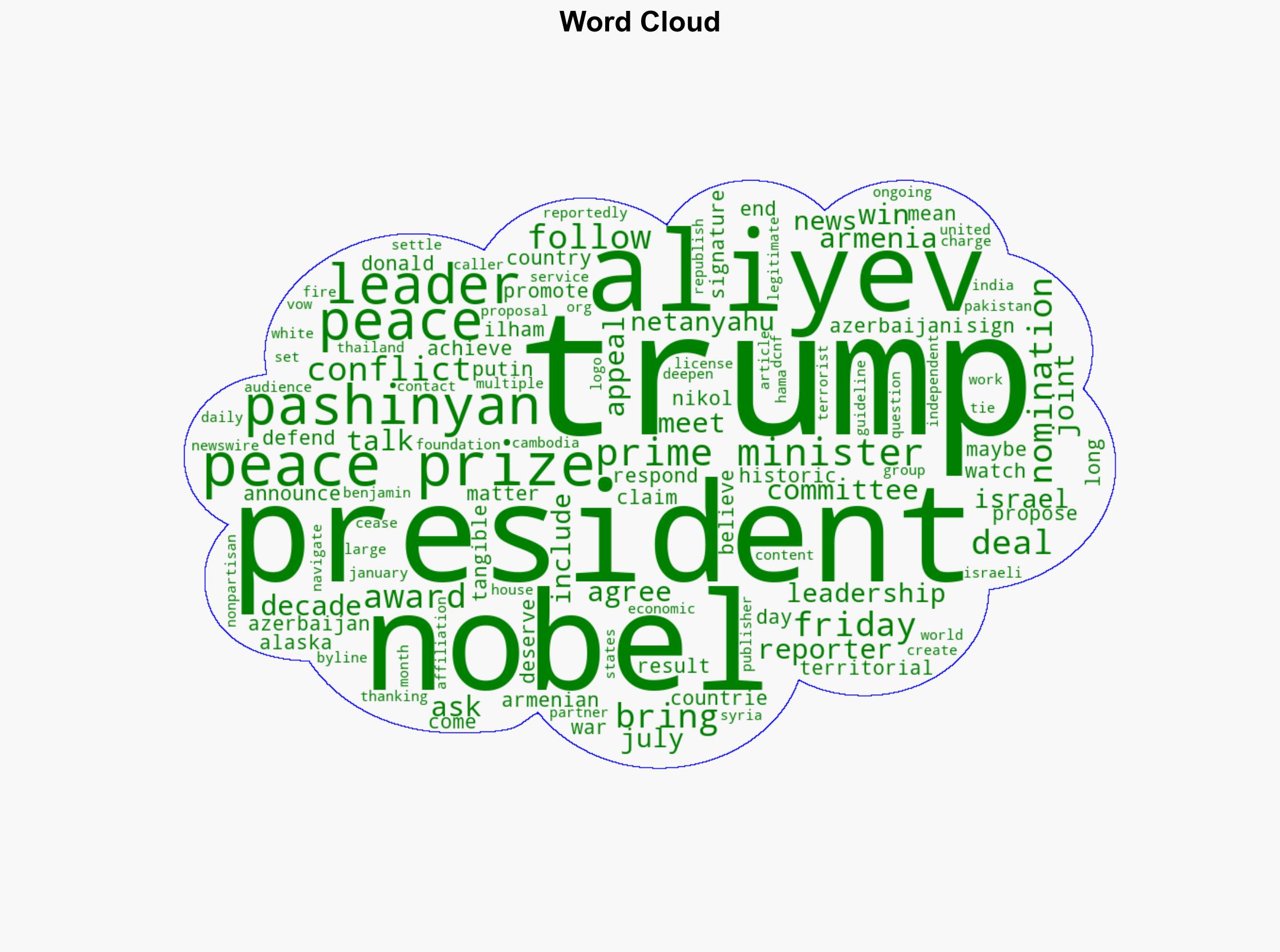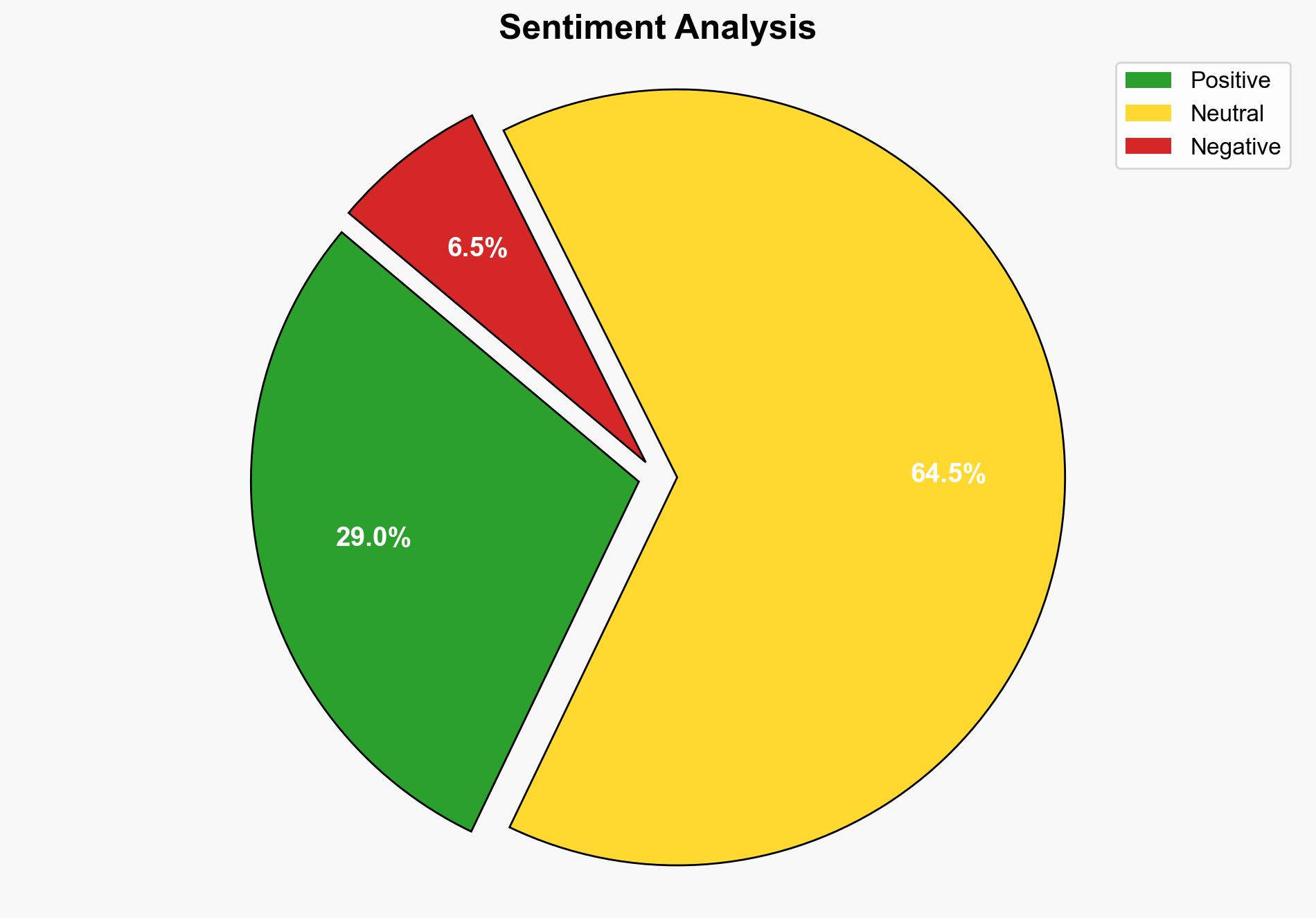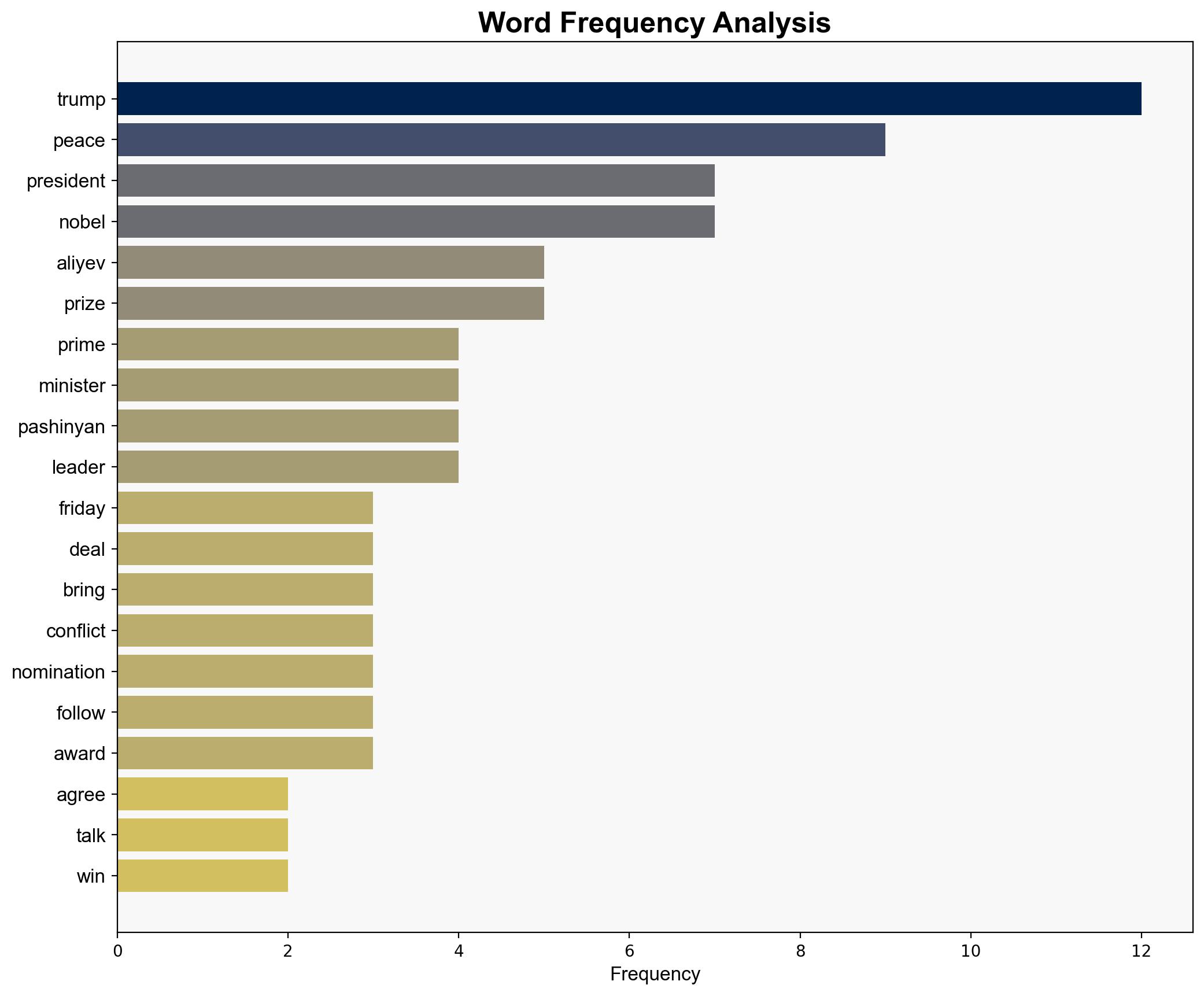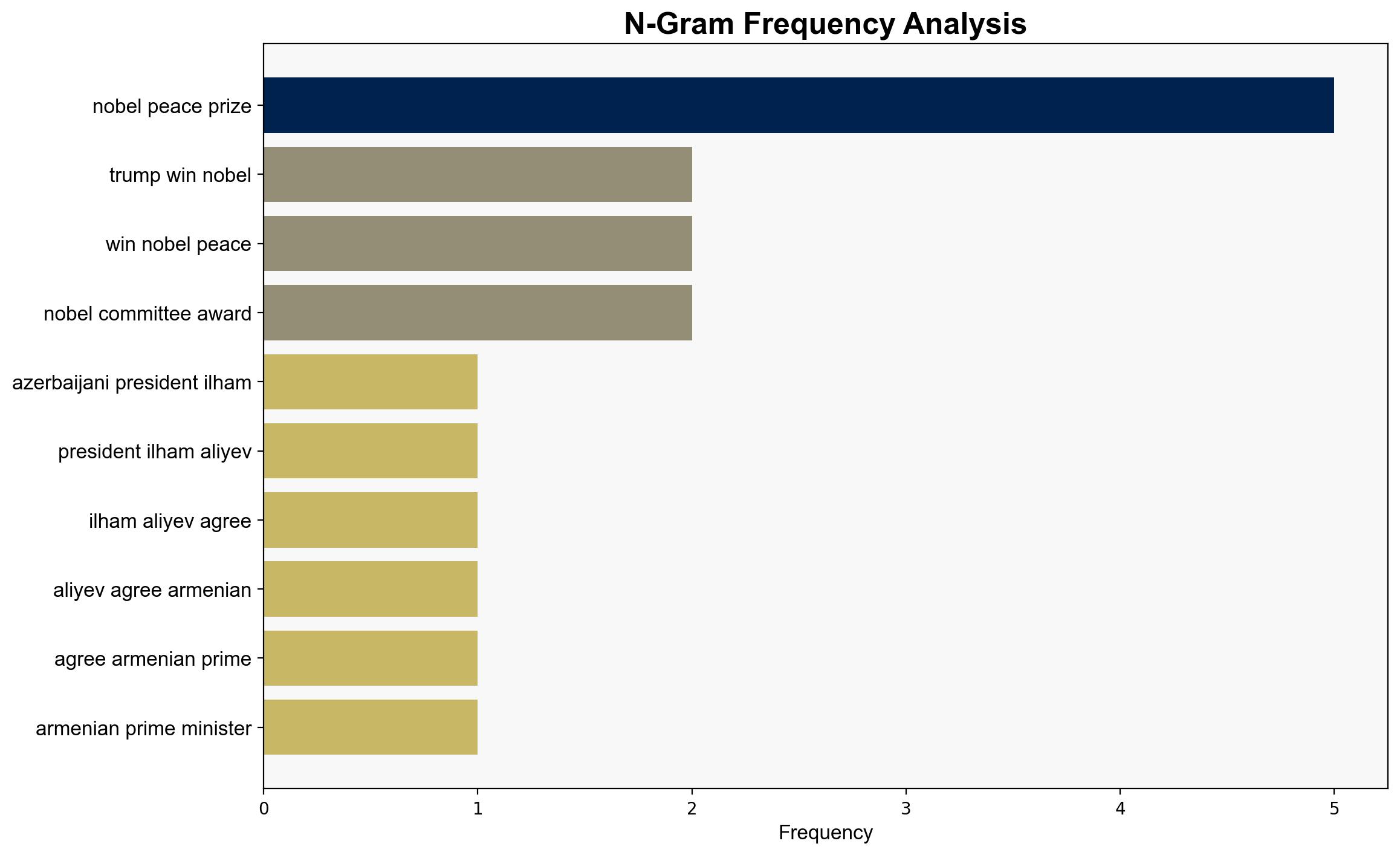Foreign Leaders Agree Trump Should Win Nobel Peace Prize – The Daily Caller
Published on: 2025-08-09
Intelligence Report: Foreign Leaders Agree Trump Should Win Nobel Peace Prize – The Daily Caller
1. BLUF (Bottom Line Up Front)
The most supported hypothesis suggests that the endorsement of Donald Trump for the Nobel Peace Prize by foreign leaders is primarily a strategic maneuver to strengthen diplomatic ties with the United States. Confidence in this hypothesis is moderate due to the limited scope of the source material and potential biases. Recommended action includes monitoring subsequent diplomatic engagements and assessing shifts in regional alliances.
2. Competing Hypotheses
1. **Diplomatic Strategy Hypothesis**: The endorsement of Trump for the Nobel Peace Prize by leaders such as Ilham Aliyev and Nikol Pashinyan is a calculated diplomatic strategy to enhance bilateral relations with the United States and secure economic or political benefits.
2. **Genuine Recognition Hypothesis**: The endorsement is a sincere acknowledgment of Trump’s role in facilitating peace agreements, reflecting a genuine belief in his contributions to resolving long-standing conflicts.
Using ACH 2.0, the Diplomatic Strategy Hypothesis is better supported. The alignment of endorsements with recent peace deals and economic discussions suggests strategic motivations. The Genuine Recognition Hypothesis lacks corroborative evidence beyond public statements.
3. Key Assumptions and Red Flags
– **Assumptions**: The Diplomatic Strategy Hypothesis assumes that leaders are primarily motivated by national interest rather than personal conviction. The Genuine Recognition Hypothesis assumes transparency and sincerity in public endorsements.
– **Red Flags**: Potential cognitive biases include confirmation bias, as the report may selectively highlight supportive statements. Deception indicators include the lack of independent verification of leaders’ motivations.
– **Inconsistent Data**: The report does not address potential opposition or alternative perspectives within the endorsing countries.
4. Implications and Strategic Risks
– **Geopolitical Risks**: If perceived as insincere, these endorsements could strain relations with other global powers or domestic factions.
– **Economic Implications**: Strengthened ties with the U.S. could lead to increased economic cooperation, impacting regional trade dynamics.
– **Psychological Dimensions**: Public perception of the Nobel Peace Prize’s credibility may be affected, influencing global opinion on peace processes.
5. Recommendations and Outlook
- Monitor diplomatic engagements between the U.S. and endorsing countries for signs of strategic shifts.
- Engage in dialogue with regional experts to assess the sincerity and potential impacts of these endorsements.
- Scenario Projections:
- Best Case: Enhanced U.S. influence leads to broader regional stability.
- Worst Case: Perceived insincerity damages U.S. credibility and escalates regional tensions.
- Most Likely: Incremental improvements in bilateral relations with minimal global impact.
6. Key Individuals and Entities
– Ilham Aliyev
– Nikol Pashinyan
– Donald Trump
– Benjamin Netanyahu
7. Thematic Tags
national security threats, geopolitical strategy, diplomatic relations, regional focus





